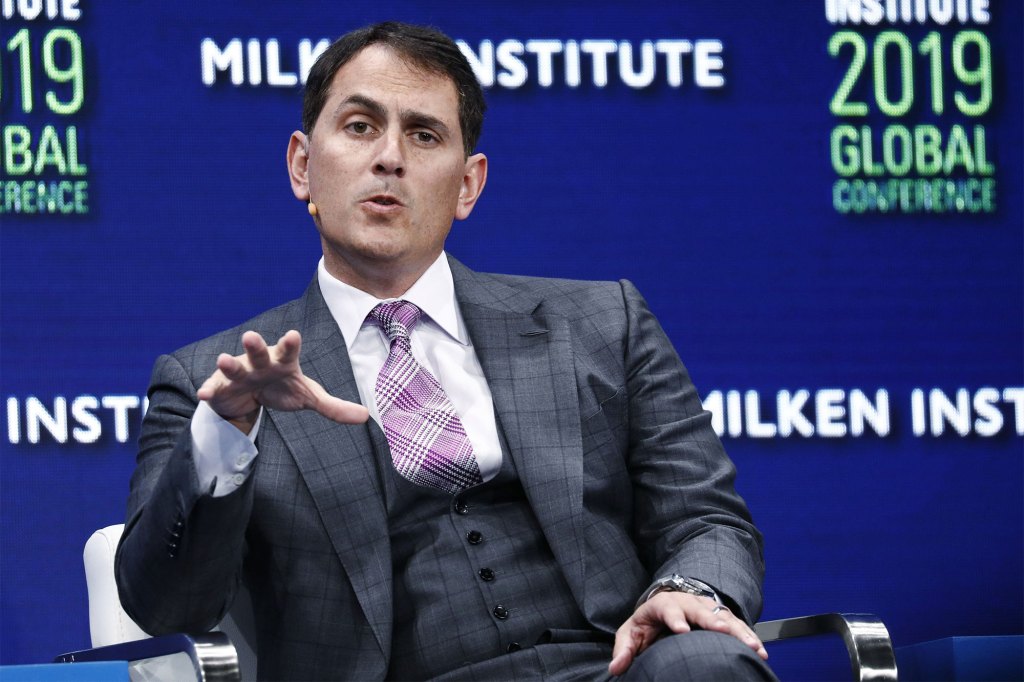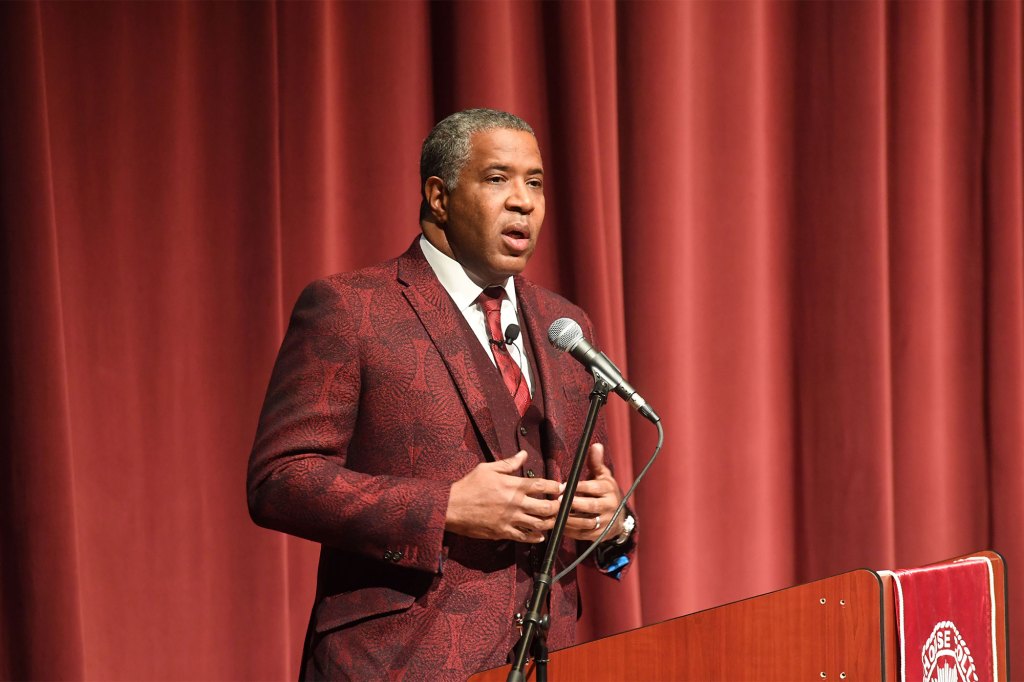Robert F. Smith still haunted by tax scandal after losing race for Denver Broncos: sources
This spring, Robert F. Smith, the richest African-American in the US, landed in the spotlight as the NFL urged him to buy the Denver Broncos to help the league address a racial-equity crisis.
Now, having lost a contest to buy the team to Walmart heir Rob Walton, the 59-year-old billionaire is grappling with a crisis of his own as he struggles to raise a new flagship technology fund for his buyout firm Vista Equity Partners, The Post has learned.
The problem: Vista appears to be having trouble attracting investors not only because of recent turmoil in the tech sector, but also because of upheaval at the fund after Smith — whose fortune is estimated by Forbes at $6.7 billion — became embroiled in a tax-evasion scandal in late 2020.
Smith — who is the chairman of Carnegie Hall and who famously shelled out $34 million in 2019 to pay off the student loans of the entire graduating class of Morehouse College — avoided federal prosecution over evading taxes on hundreds of millions of dollars in investment profits by cooperating as a witness against Robert Brockman, a Vista seed investor who was criminally indicted in 2020 in a record-breaking $2 billion tax fraud case.
Nevertheless, insiders say the scandal continues to haunt Vista. Co-founder and ex-president Brian Sheth — a respected rainmaker whose deal-hunting prowess was credited for much of the firm’s early success — reportedly exited after Smith refused to hand over the reins even temporarily as he negotiated with the Department of Justice in the tax case. At the time, Sheth said his departure was unrelated to Smith’s “personal matter.”
Recently, signs have emerged that investors may be growing skittish over Smith flying the firm solo. In October, Vista reportedly launched an effort to raise a new buyout fund worth between $20 billion and $24 billion — eclipsing the $17 billion it raised for its most recent flagship fund in 2019 — at the time the biggest tech-focused buyout fund ever.
Vista had targeted its latest flagship to achieve a “first close” in April, according to the Wall Street Journal, meaning that an initial trove of cash would be available for investing. But Vista has received only $9.4 billion in commitments so far, and it’s not clear whether the firm has begun deploying it, sources close to the situation told The Post.
A spokesperson for Vista declined to comment for this article.
New York state’s pension fund in May invested just $400 million in Vista’s new fund after committing $500 million to the smaller 2019 fund, according to public filings. The Oregon Public Employees Retirement System revealed in a March filing it has committed only $250 million to Vista’s new fund after investing $500 million in 2019.
Some government pensions have a policy of not investing with those who have defrauded the government, a Vista investor said, adding that his pension has not yet made up its mind.
It’s an especially sore point given that Vista’s archrival — the tech-focused buyout fund Thoma Bravo — in May closed on a $20 billion-plus fund after being in the market for about the same amount of time. That’s after Thoma Bravo outshone Vista’s 2019 fund with its own $17.8 billion fund.
The shortfall comes as Smith for the first time is running Vista without Sheth. As investors gauge the importance of that, some point out that Vista has used a formula for its acquisition targets, almost always enterprise software companies, that includes acquiring rival firms in the same space and combining them to slash costs while gaining market clout.
“Do they need Sheth to oversee the process of running companies? I don’t think so,” a current Vista investor said. “I think where he could be handy is in pricing the deals.”
One possible case in point: Vista on Jan. 31 partnered with Elliott Management to buy software giant Citrix for $16.5 billion, or $104 per share. An historic rout of tech shares has since followed, with insiders estimating Citrix’s value has been halved. Nevertheless, Citrix is trading at more than $98 a share as the market believes the $104 deal will close in the next few months owing to a tightly written merger agreement.
The banks who agreed to finance the deal stand to lose $1 billion when they resell Citrix’s debt for much lower than par, an advisor to private equity firms said of the Citrix deal.
“This is the biggest bust of the year,” the advisor said.
To compare, Elon Musk has suggested he could walk away from his agreement to buy Twitter for $54.20 a share, yet the social network’s shares are trading at just $38. The difference: Vista is in the business of buying companies and if Smith breaks a merger agreement on what is seen as a flimsy excuse it would make it very hard for him to win the trust of other sellers.
Smith elected not to make a formal bid for the Denver Broncos after some Vista investors expressed concern it would be too much of a distraction while he manages the firm, sources said.
Despite the setbacks, insiders say Smith appears to be focused on the future at Vista — and that he appears to be thinking more about offense than defense.
As recently as a few weeks ago, Vista was looking to take advantage of the tech market dislocation and acquire software companies trading near 52-week lows, a source with direct knowledge of the situation said. Vista has been doing so by sending opportunistic letters intended to put pressure on a company to sell, according to a source close to the situation.
“Vista calls CEOs to see if they are interested in selling, the CEOs say no and then they write letters to directors forcing board meetings,” the source said.





